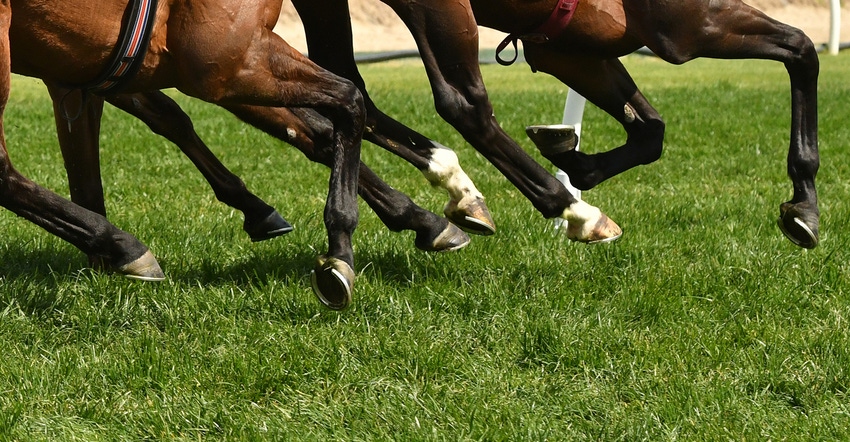February 8, 2018

On Feb. 1, the Ohio Department of Agriculture confirmed positive cases of equine herpes virus in four horses at separate locations around the state. ODA has placed multiple facilities under quarantine, and is actively investigating where these animals have been and what other animals might have been exposed.
Two of the positive horses raced at the Meadows Racetrack and Casino in Washington, Pa. Those animals are currently under quarantine at separate facilities. One of the two raced at Miami Valley Gaming near Lebanon, Ohio, Jan. 13 and 24. Testing confirms they have EHV-1, but neither animal is showing clinical signs of illness.
“Racehorse owners should take immediate precautions to protect their animals,” says state veterinarian Dr. Tony Forshey. “All owners should closely observe their horses for any signs of illness and take their temperatures daily. They should immediately contact their veterinarian if they have any concerns.”
Additionally, two horses at the University of Findlay have tested positive for EHV. These animals are also not showing clinical symptoms. ODA has placed the facility under quarantine. Currently, the department does not believe these animals are connected to the other positive tests, but epidemiological investigations are underway.
EHV can spread quickly from horse to horse, and can cause three different forms of disease: rhinopneumonitis (a respiratory disease of mostly young horses), abortions in pregnant mares, and the neurologic disease EHV-1 myeloencephalopathy, which can be fatal to horses. The virus is not a human health threat.
EHV can be spread through the air or contaminated clothing and equipment. It’s important that horse owners practice strict biosecurity measures in order to protect their animals and prevent any further spread of the disease. Veterinarians may submit nasal swab samples to the ODA’s Animal Disease Diagnostic Laboratory for testing.
Source: ODA
You May Also Like




